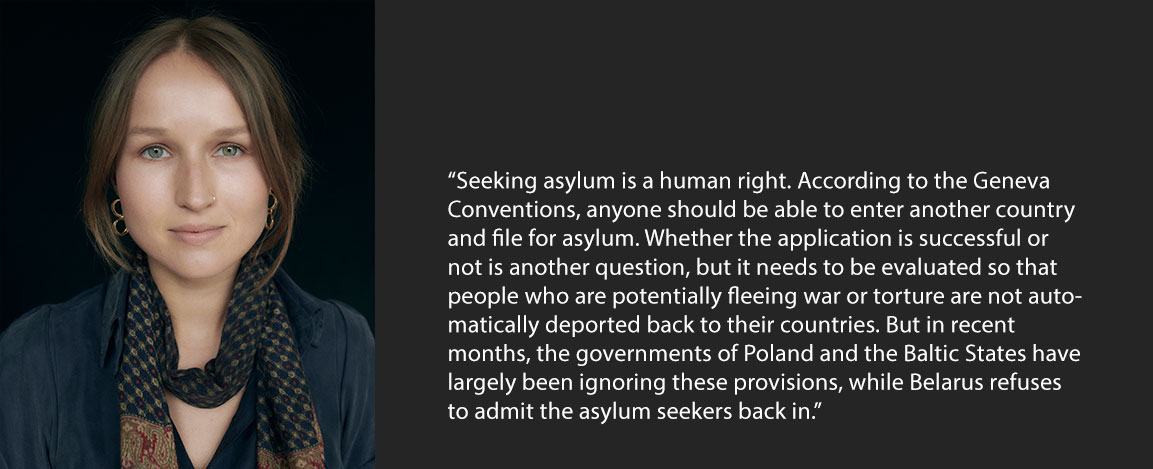This new crisis is a stark reminder that the EU migration policy prioritizes border security over human rights. It is likely that pushbacks wouldn't have become such an obvious tool of choice now if they hadn't been widely practiced in Croatia, Cyprus, France, Greece, Italy, Malta, Slovenia, and Spain for the past five years with the silent approval of EU institutions, writes Ada Petriczko for the Boston Globe. Petriczko is the 2021 Elizabeth Neuffer Fellow at the International Women's Media Foundation and a research fellow at MIT's Center for International Studies.
Read the full text here in the Boston Globe | For the MIT community, full text is available here at the MIT Libraries
There is a humanitarian crisis brewing in Europe, provoked by an authoritarian regime, in which the European Union has become complicit.
Since early summer, thousands of people have been attempting to migrate to the EU through its eastern borders in Lithuania, Latvia, and Poland. They come predominantly from Iraq, Syria and Afghanistan, and their point of arrival in Europe is Belarus, an authoritarian regime located between Poland and Russia. They are lured by Belarusian state travel agencies, charging thousands of euros for the prospect of a safe passage to the EU. After they land in Minsk, Belarus's capital, they are guided to the EU borders, but from then on nothing goes as promised.
They experience violent pushbacks from Polish, Lithuanian, and Latvian border patrols, forcing them to return to Belarus. The Belarusian border patrols respond by driving them back to the EU borders. And so the vicious cycle continues. In most cases, none of the countries are willing to process the migrants' asylum applications, thus violating the 1951 Geneva Convention on the status of refugees.
Read the full text here in the Boston Globe | For the MIT community, full text is available here at the MIT Libraries




